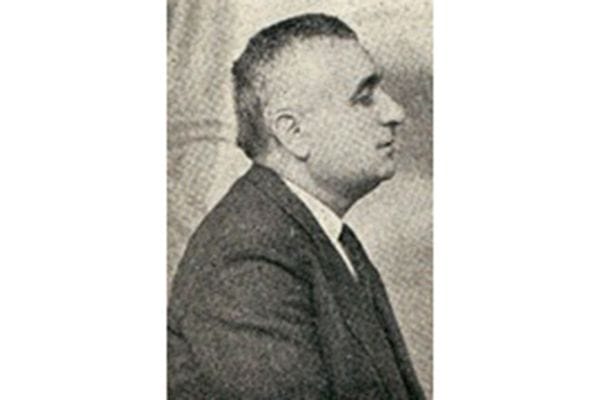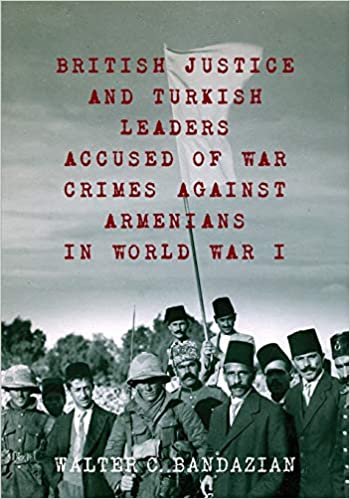Death of Aharon Dadourian (January 31, 1965)

Aharon Dadourian, who frequently signed with his first name, was a poet who started his career in the years before the genocide and continued writing for the next half a century in the Diaspora, but was little known outside of a narrow circle.
He was born in Ovajik (province of Ismit, in Asia Minor) on September 19, 1887. He initially studied at the Mekhitarist School of Constantinople and then at the Moօrat-Raphaelian Lyceum of Venice (1907-1909), where he met the great poet, Taniel Varoujan.
After finishing his studies, he returned to Constantinople, where he became a teacher and started contributing poems to the Armenian journals. His poems of pagan inspiration, which were a feature of the day, earned him some fame. He was one of the five members of the Mehyan group, participating in the publication of the homonymous journal in 1914 along with Varoujan, Gostan Zarian, Hagop Kufejian (Oshagan), and Kegham Parseghian.
During the genocide, he was deported, but managed to remain in Konia and returned to Constantinople after the end of World War I. In 1922 he left the city and went to study at the University of Prague (1922–1925).
He settled in Paris in 1928 and taught at the Tbrotzassere School until the beginning of World War II. He published occasionally in the press, even if he produced abundantly. He published two collections of poetry, Parchments (1937) and Bohemian Poems (1939), for which he was mostly known.
According to critic Krikor Beledian, “Aharon’s poetry served as a link between the generation of 1914 and the one that followed. As a result of this fact, it was twice rejected. Its main impact was to act as a poetic conscience, a meta-poetry of sorts similar in a way to that of Mallarmé and Valéry, poets that Aharon must have known. For him the poem was an affair of the soul, not of the heart, and it represented the entire spirit of man as a poet who ‘participates in the secret work of the poem’s creation.’”
Aharon Dadourian moved to Marseilles during World War II and returned to Paris after the end of the conflict, continuing the publication of his poetry in French Armenian journals. He also published four collections of poetry in the last years of his life: The Forest of Plane Trees (1949), The Earth in Labor Pains… (1957), Before the Fire of My Altars (1958), and Red Gospel (1959). He passed away on January 31, 1965, in Montmorency and was buried at the cemetery of Bagneux, another suburb of Paris. Two more collections of poetry, Last Drops and Old Poems, were published in 1971.

